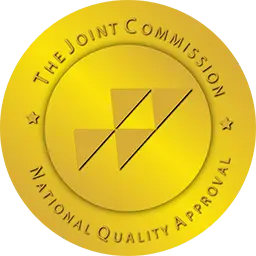Do you know It’s pretty eye-opening to realize that one out of every seven young people between the ages of 10 and 19 worldwide, is dealing with a mental disorder?
That’s a substantial 13% of the entire health burden for this age group across the globe. Also, It’s alarming to learn that suicide ranks as the fourth leading cause of death among 15 to 29-year-olds due to the severity of the mental health crisis among the youth.
Well to overcome this, teen treatment centers play a pivotal role in providing the necessary support and guidance for adolescents facing various challenges, such as mental health issues, substance abuse, or behavioral concerns.
These centers offer a shelter where adolescents can explore their strengths, address their struggles, and learn valuable life skills. It’s not just about intervention, it’s about fostering resilience and self-discovery.
As parents embark on this journey with their teens, understanding the available resources and choosing the right treatment center empowers adolescents to overcome obstacles and level the way for a brighter future.
Let’s start with checking into the teenage ups and downs. It’s that period when life seems up in the air, and emotions are all over the place like a crazy storm.
Emotional Highs And Lows Of The Teenage
Teens are often caught up in a whirlwind of anxiety and depression. It’s like a constant battle with worries, sadness, and feeling drained. This can show up as sudden panic attacks, pulling back from friends, and struggling to focus on anything.
Dealing with emotions becomes a bit of a puzzle, leading to moments of explosive anger or frustration that strain relationships with everyone, friends, family, and teachers. And it doesn’t stop there; it takes a toll on self-esteem, making teens feel not good enough, socially anxious, and scared of failing.
Behavioral Ups and Downs
Now, let’s talk about how these emotional storms can lead to risky behaviors. Think of substance abuse, reckless driving, or jumping into things without a second thought. And here’s a tough one, some teens might resort to self-harm as a way to cope. It’s a red flag, a sign that there’s some deep emotional pain going on.
To add to the mix, some might just pull away from the things they used to love, opting for some solo time in the name of dealing with their emotional struggles.
Academic Ups and Downs
The storm doesn’t spare academics either. Imagine trying to concentrate when your emotions are all over the place. It’s tough, right? That difficulty concentrating often leads to slipping grades, missed assignments, and an overall academic struggle.
Motivation takes a hit, making learning feel like a drag, resulting in a performance dip and struggling to keep up with classmates. In the worst cases, the emotional turmoil might push teens to avoid school altogether, thanks to anxieties about dealing with friends and teachers.
Long-Term Impact:
But here’s the kicker, these challenges don’t just vanish when high school ends. Nope, they can echo into adulthood. Lingering emotional struggles might pave the way for long-term mental health issues like anxiety, depression, or even addiction. Academic setbacks during the teenage years can shadow future educational and career opportunities.
And, hey, those struggles with emotions and behaviors? They can mess with forming and maintaining healthy relationships in adulthood. Oh, and those not-so-healthy coping mechanisms picked up in adolescence? They might just set the stage for substance abuse problems down the road.
Well, these things can be cured you know? Let’s check upon the ways to see how teens can feel

4 Ways Teens Can Take Back Control
1. Letting Teens Lead in Treatment
Alright, first things first, let’s talk about giving teens a say in their treatment. It’s not about just telling them what to do, it’s about involving them in the decisions. Discuss treatment options, medications, and therapy approaches with them. Share the info in a way that fits their age, and hey, respect what they prefer. This way, they feel more in control, and it keeps them engaged in the whole process.
2. Setting Goals Together
Now, goal-setting might sound like a grown-up thing, but here’s the deal, working together with teens to set achievable goals is a game-changer. Make these goals specific, measurable, attainable, relevant, and time-bound, SMART goals, they call them. When teens have a say in their goals, it’s like they own them, and that ownership keeps them motivated.
3. Building Bonds That Matter
Building a connection with a therapist is crucial. It’s not just about talking; it’s about trust and rapport. Therapists need to create a safe space where teens feel heard and supported. Cultural awareness is key here too, therapists should get where teens are coming from. And confidentiality? Teens need to know what stays private and what doesn’t, so they can open up without worrying.
4. Preparing Teens for the Real World
Teens need tools to handle stress and tricky emotions. So, therapists, equip them with healthy coping mechanisms, maybe some mindfulness, relaxation tricks, or even just a good old journaling session. And communication skills? Teach them how to express themselves, build relationships, and stand up for what they need. Social skills are on the menu too. Practicing how to handle conflicts and showing empathy goes a long way. Oh, and self-care? It’s not just for adults. Encourage teens to catch enough Zs, eat good stuff, move their bodies, and hang out with the supportive crew. It’s the recipe for a happier, more resilient teen.
Alright, so here’s a guide on how teens can be the owner of their treatment journey. We’re talking about letting them make choices, setting goals as a team, building strong connections, and giving them life skills.
Searching Teen Treatment Centers in Massachusetts
Let’s check into the next step in searching and picking a center that suits your family and your teen’s needs.
When you’re on the journey to support your teen, it’s essential to gather all the necessary information. Start by reaching out and visiting the treatment centers you’re considering. Centers like Bridgewell and the Center for Family Justice provide residential programs to day and outpatient services, they are committed to assisting teens who are grappling with mental health and substance abuse issues.
Whether it’s a call or an in-person tour, ask questions about the daily routine for teens, the staff who will be working closely with your teen, therapist-to-client ratios, and inquire about success stories or success rates. The insights you gain from direct conversations with the treatment center staff will provide a solid foundation for making informed decisions.
However, If you’re looking for more guidance on navigating teen treatment centers in Massachusetts, reach out to Crown Adolescent Health today. We understand the challenges teens and families face and are here to help. Whether you have questions about program structures, or staff qualifications, or need recommendations based on personal experiences, our team is ready to assist. You can easily get in touch by giving us a call at 888.557.1552. Take that first step toward finding the right support for your teen.
Conclusion
Growing up is tough, especially when you hear about how many teens are dealing with mental health issues. It’s the fourth leading cause of death in that age group. But here’s the good part: there are places called teen treatment centers that help out. They’re like guiding lights, offering lots of support for things like mental health struggles, substance use, and behavior problems.
These centers do more than just step in when there’s a problem; they create safe spots where teens can figure out their strengths, face challenges, and learn important life skills. Teenage years can be a real emotional rollercoaster, affecting school, behavior, and even long-term happiness. But guess what? Those tough times can get better. With the right help from these centers, teens can find their way through the challenges and come out stronger.



